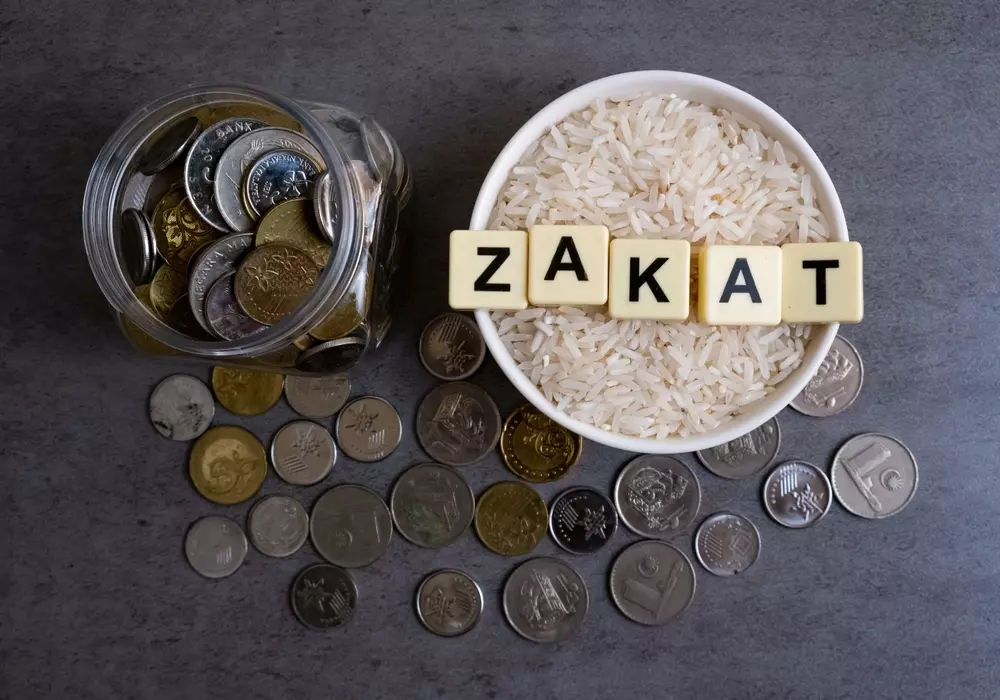In Islam, prophets are those who are thought to be messengers from Allah (SWT) who spread his message and teachings to people on Earth. There are 25 prophets in total, and Charity Meals is here to walk you through the names of all prophets in Islam. It’s important that Muslims understand the prophets' timeline in Islam, as they’re encouraged to follow in their footsteps by doing all they can to please Allah (SWT). For instance, the prophets spent much of their time helping the less fortunate, and you can mirror this behaviour by donating to Charity Meals.
Who Are the Prophets in Islam?
All prophets' names in Islam are as follows:
Adam
Adam was the first Islamic prophet, and he and Hawwa were the first humans on Earth. He’s considered the father of the human race, and Allah (SWT) created him and Hawwa from clay. Allah (SWT) gave the pair free rein in Paradise, in which they were allowed anything apart from the fruit of one tree. Unfortunately, they disobeyed Him, and He punished them by sending them to Earth. On Earth, Adam had to learn to grow crops, bake, and survive.
Adam and Hawwa had many children, and one of these children was called Sheeth. Adam chose Sheeth as his successor, so while he’s often not listed among the 25 prophets, he’s still considered a prophet and the main continuation of Adam’s lineage.
Idris
Idris was born in Babylon and followed the rules and teachings of Prophet Sheeth. So, when he came of age, he received the Revelation, and Allah (SWT) bestowed prophethood upon him. During his time in Babylon, he warned others not to commit sins; however, they didn’t listen, and this caused him to leave. Some people followed him to Egypt, where he invested a lot of time into preaching, worshipping, and researching his ancestors, Adam and Hawwa. It’s thought that he possessed great wisdom during his time in Egypt and became the first man to use a pen to write.
Nuh
Nuh received the message from Allah (SWT) that unless people started to recognise Him as the one true God, a great disaster would happen. Nuh tried his best to warn people that if they continued to worship multiple gods, then Allah (SWT) would punish them. Despite this, the people didn’t listen, and in an attempt to preserve life, including those who eventually listened to him, Nuh built an ark. On the ark, he admitted a pair of each type of animal and awaited the arrival of the Great Flood – Allah (SWT) warned this would happen, and it did.
Hud
Hud lived in ʿĀd, and at the time, he was the only one who was devoted to Allah (SWT) as the sole god. He was desperate for people to listen to him when he said there was only one god, but they refused and mocked him. This mocking led Allah (SWT) to create a thunderous storm and destroy ʿĀd.
Saleh
Allah (SWT) sent Saleh to spread His teachings and preach against the Shirk’s wealth and selfishness in Thamud. The people of Thamud refused to believe Saleh until Allah (SWT) performed a miracle. So, Allah (SWT) gifted the people of Thamud a she-camel, but they hamstrung the camel. Saleh warned them that there would be consequences to their actions and disbelief, and Allah (SWT) punished them in the form of an earthquake.
Ibrahim
Because of the actions of the Prophet Ibrahim, to this day, Muslims carry out Qurbani sacrifices during Eid al-Adha. Allah (SWT) commanded Ibrahim to sacrifice his son, Ismail. Both Ibrahim and Ismail agreed that they must obey Allah (SWT); however, at the last minute, Allah (SWT) swapped Ismail for a ram and spared his life, revealing that the command had been a test.
Lut
Allah (SWT) sent Lut to the cities of Sodom and Gomorrah to promote monotheism and teach people about sins. When he said that the people of the cities were sinning, they didn’t listen, and this led to the cities being destroyed.
Ismail
Ismail was the son of Ibrahim and promoted Allah’s (SWT) teachings just like his father.
Ishaq
Ishaq was Ismail’s brother and Ibrahim’s son, meaning he continued to spread the word of Allah (SWT) like those before him.
Yaqub
Yaqub is mentioned 16 times in the Quran – he was the father of 12 tribes and was described as a man of might.
Yusuf
Yusuf was the son of Yaqub, and his father loved him dearly, which led to jealousy among his brothers, causing them to throw him in a well. Some people travelling discovered him and enslaved him before imprisoning him for a crime he didn’t commit. Even in such hardship, his faith in Allah (SWT) didn’t waver.
Ayyub
Allah (SWT) harshly tested Ayyub for years, but he remained strong in his faith, and Allah (SWT) rewarded him for this.
Shu-ayyb
Allah (SWT) sent Shu-ayyb to the Midlanite community as a prophet to spread His teachings and warn people that they’d be punished if they didn’t change their fraudulent ways. They didn’t listen, and their community was destroyed. Shu-ayyb is known as the most eloquent prophet.
Musa
Musa is mentioned more than any other person in the Quran. It’s said that he and Prophet Muhammad (PBUH) shared multiple parallels.
Harun
Harun was the brother of Musa and the first high priest of the Israelites.
Dhu’l-Kifl
Dhu’l-Kifl was mentioned twice in the Quran and preached the word of Allah (SWT) throughout Iraq.
Dawud
Dawud was a soldier for King Talut and defeated the giant, Jalut. He also received the Zabur (biblical psalms) and was one of very few prophets to have achieved this.
Sulaiman
Sulaiman was the son of Dawud and took over his prophecy when he died. Sulaiman was the king of Israel, and it was believed that he could communicate with animals and Jinn. He’s hailed as one of the greatest rules of all time, and it’s said that no king before or after him could reach his level.
Ilyas
Ilyas lived in the northern kingdom of Israel. At the time, people who worshipped the ancient god Baal also lived here. Ilyas told them about Allah (SWT), defending Him and remaining loyal to Him.
Al-Yasa
Al-Yasa is briefly mentioned in the Quran as having miracle powers, being able to walk on water, revive the deceased, and cure the diseased. It’s believed that Ilyas raised him.
Yunus
Allah (SWT) sent Prophet Yunus to the city of Nineveh in north Iraq, as the city was full of idol worshippers. Yunus attempted to inform the people of Nineveh that Allah (SWT) is the only god and guide them on the right path. Despite this, they rejected him, and Yunus left Nineveh against Allah’s (SWT) will. So, Allah (SWT) turned the sky red above Nineveh and brewed an awful storm. The people of the city dropped to their knees and begged for mercy, which Allah (SWT) granted. At this time, Yunus was travelling by boat; he knew that this was his punishment for leaving and sacrificed himself for the sake of others. He dived into the sea and was swallowed by a whale; upon repenting to Allah (SWT), he was allowed to return to Nineveh.
Zakariyya
Zakariyya was the father of Yahya, who became the guardian of Mary, the mother of Isa.
Yahya
Yahya was the son of Zakariyya, and Allah (SWT) informed him of Isa's arrival. Yahya was known as a merciful and gentle man who was committed to Allah (SWT) – in his whole life, he didn’t do one thing against the will of Allah (SWT).
Isa
Allah (SWT) sent Isa to guide the people of Israel on a straight path. He’s mentioned 93 times in the Quran, and it’s said that Allah (SWT) revealed the gospel to him.
Muhammad (PBUH)
Muhammad (PBUH) is the last prophet in Islam, and he was sent by Allah (SWT) to confirm the teachings of the prophets before him. He’s widely considered the father of Islam, as Allah (SWT) had the Angel Jibril reveal the Quran to him. Muhammad (PBUH) then recited the teachings of the Quran over 23 years. Originally, he lived in Mecca, where he spread the word of Allah (SWT) to people who believed in multiple gods. This led to him and his followers being persecuted, so they left for Medina. Years later, Muhammad (PBUH) and his followers returned to Mecca, where they were shown respect by those who had previously persecuted them.
A Timeline of Prophets in Islam
The chronology of prophets in Islam is as follows:
- Adam – Being the first human being, Adam’s exact time period isn’t defined.
- Idris – Pre-flood era.
- Nuh – Approximately 950 years before the flood (the Pre-Abrahamic period).
- Hud – Post-flood era.
- Saleh – Post-flood era.
- Ibrahim – Approximately 2000 BCE.
- Lut – Contemporary with Ibrahim.
- Ismail – Approximately 1900 BCE.
- Ishaq – Approximately 1900 BCE.
- Yaqub – Approximately 1800 BCE.
- Yusuf – Approximately 1700 BCE.
- Ayyub – Post-Ibrahimic period.
- Shu-ayyb – Post-Ibrahimic period.
- Musa – Approximately 1300 BCE.
- Harun – Contemporary with Musa.
- Dhu’l-Kifl – Likely post-Musa era.
- Dawud – Approximately 1000 BCE.
- Sulaiman – Approximately 970–931 BCE.
- Ilyas – Post-Sulaiman era.
- Al-Yasa – Post-Ilyas era.
- Yunus – Approximately 8th century BCE.
- Zakariyya – Approximately 1st century BCE.
- Yahya – 1st century CE.
- Isa – 1st century CE.
- Muhammad (PBUH) – 570-632 CE.
Follow in the Footsteps of the Prophets with Charity Meals
Throughout the timeline of Islamic prophets, each prophet was devoted to helping others. You can follow in their footsteps by donating to Charity Meals today.



